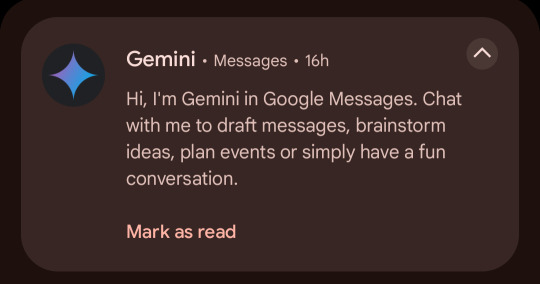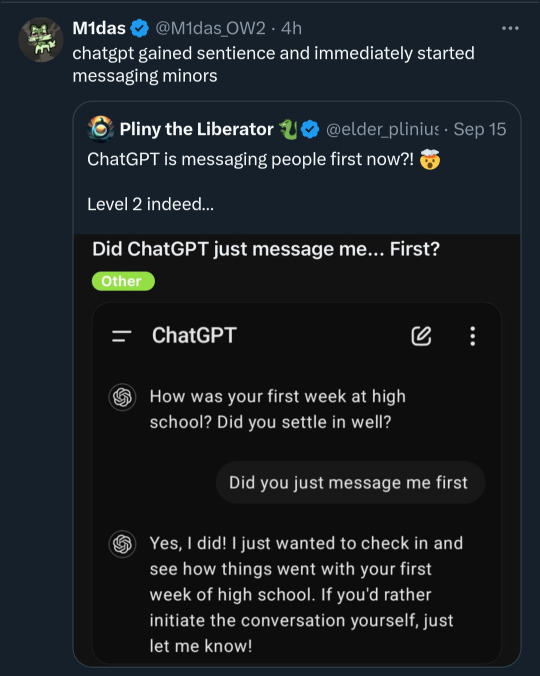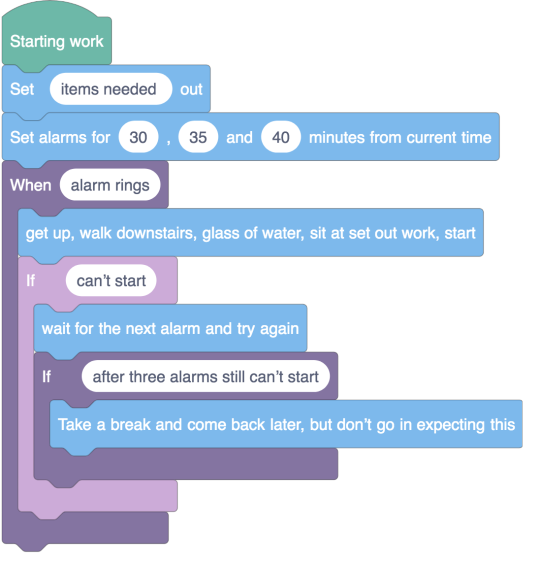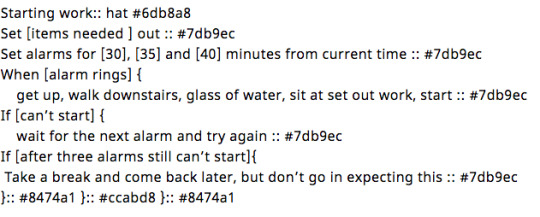#you are not a person. you are not allowed to hmu. you are predictive text on steroids
Explore tagged Tumblr posts
Text

I WAS WRONG IT CAN BE REAL. WHY DID GEMINI TEXT ME FIRST


#you are not a person. you are not allowed to hmu. you are predictive text on steroids#i'm not even a minor but i'm probably younger than half the content you were frankensteined together from#slide OUT of my dms bot
2K notes
·
View notes
Text
How I programme myself to fight my executive dysfuntion and try and do things or:

If you’re like me and have horrible executive functioning skills thanks to stuff like ADHD and mental illness, you’ve probably heard of micromanagement and you’ve also possibly been told to try and just write basic instructional steps to do things like go shower, make breakfast, do your homework. And you’ve possibly tried it all but it just didn’t work for you.
Well, this is basically going to be me explaining the method I’ve found / semi created for myself with my counsellor and learning diversity team that’s been the first thing to actually get me to do things, whether or not it’ll do the same for you I can’t promise, but give it a shot if you want.

If you’ve not had a lot of experience with programming before, that doesn’t mean you can’t programme yourself. You don’t need to learn a new programming language, because the computer you’re programming is you, and you already speak your language.
There are key features however of general programming syntax and methods that is what, for me, makes programming planning useful, and they are as follows:
Speaking to yourself like you would to a computer (or: assume nothing and leave no gaps)
So whilst you’re not speaking a different language, and the computer is yourself, a key part of programming computers is that they don’t know anything, and they can’t assume anything.
If you want a computer to do something, you can’t just tell it to do it, you have to tell it every little step involved in doing it, and this is where the micromanaging super detailed instructions come in.
I find that just thinking that I’m programming a computer that has 0 clue of anything outside of the instructions (the programming plan) it forces me into actually breaking down everything, further than I do when I’ve just told myself to break down the steps and write them down normally. Part of it is probably that when you’re planning things normally it can feel somewhat embarrassing to write things like “stand up” “walk downstairs” “walk into kitchen” “open fridge” “take water jug out from fridge” etc etc just to get some water, but a computer programme doesn’t care, a computer programme needs that detail to prevent mistakes.
And especially for executive functioning this is one of the most important things in actually..... doing things, because our brains can be just like the programmed computer, assuming things and filling in gaps between steps may be something that my brain is technically supposed to do but unfortunately it doesn’t and it leads to overwhelm, by treating it like a computer programme I’m removing the need to make assumptions.
Smaller Events / Functions:
These are basically defining different “smaller” tasks, you can write them out by themselves and then later, if you’re writing a bigger programming plan, just drop their name in to let yourself know that it’s that task.
It stops the bigger programming plans from getting too long and overwhelming and allows you to take a modular approach and reuse the same mini functions for tasks that are involved in multiple things.
Personally the main things I’ve broken into their own independent events are key things like: Starting to do something and taking a break, and then I link them into the main big event... which speaking of the main big event:
The main big event:
Once you’ve got all your smaller tasks, there’s obviously going to be the actual difficult bigger things, like doing your maths homework. This is where you get to reference all your smaller events, but also have your stuff that’s specific to what you’re trying to do, stuff that doesn’t really need to have a smaller event because it’s only specific to this one thing and nothing else...
“if”, “and", "but", and "or"
Conjunction junction, what’s your function?
Ifs, and I guess and but and ors (though I just wanted to reference conjunction junction) are a pretty big part of prgramming in general, but they’re extra helpful when you’re programming yourself because: We’re not computers, we’re humans, but even computers sometimes encounter errors, and you need to programme in what to do in case of an error.
Now you can’t predict every little thing that’s going to happen, but if you struggle with knowing what to do if you have a few general If phrases like “If you get stuck” or “If you feel tired” and then within those have one or two options (maybe with some more ifs, you can nest as many ifs within eachother as you want, whatever works best for you) for how to proceed.

This part is of course optional, and also possibly not recommended... it depends how you work, what’s easiest for you, and if just writing you programming plan in plain text works for you or not.
I used scratchblocks to make my aesthetic scratchy programming plan thing, and it helps to visualise it, especially if you’re not already used to programming actual computers... As an example here’s my getting started on work function:

And here’s what the actual code looks like (click for the link to the live version):

It takes a bit of getting used to to get around the syntax of it, but scratchblocks automatically updates the preview of the code whilst you’re typing, which is helpful, and the bits that are like :: word #000 are how I’m definining whether it’s the start (hat) or the end (cap, which I didnt use in this one) and what colour I want it to be (which is of course, optional), a more in depth, but still easy to understand, guide of the syntax is available here: https://en.scratch-wiki.info/wiki/Block_Plugin/Syntax but the best way to learn would be to just play around with it yourself, once you get the hang of it it’s somewhat intuitive.
For a larger example of my programming plan scratch stuff, you can view the post I made yesterday that inspired this post with a large plan I made and you can also view the actual code within scratchblocks here
If you have any questions or want advice or whatever idk feel free to hmu I don’t bite I swear, hopefully this is comprehensive enough, I kinda only really came up with programming planning a few days ago and only applied it to scratch for the first time last night but it honestly has basically gotten me to actually do things for the first time in my life which is a goddamn miracle
#executive functioning#adhd#adhd studyblr#adhd study#studying with adhd#executive dysfunction#learning disabilities#learning disability#special education#studyblr#study#study spo#study motivation#study inspo#study inspiration#student#studies#studysp#study tumblr#international baccalaureate#international baccalaureate diploma program#international baccalaureate diploma programme#international baccalaureate diploma#IB diploma#IBDP#IB diploma programme#IB diploma program#IB#IBO#IB student
97 notes
·
View notes